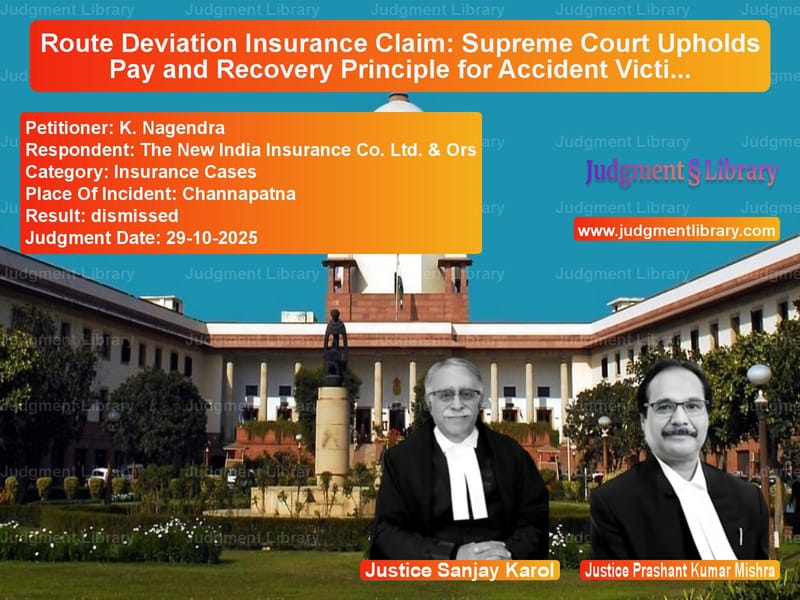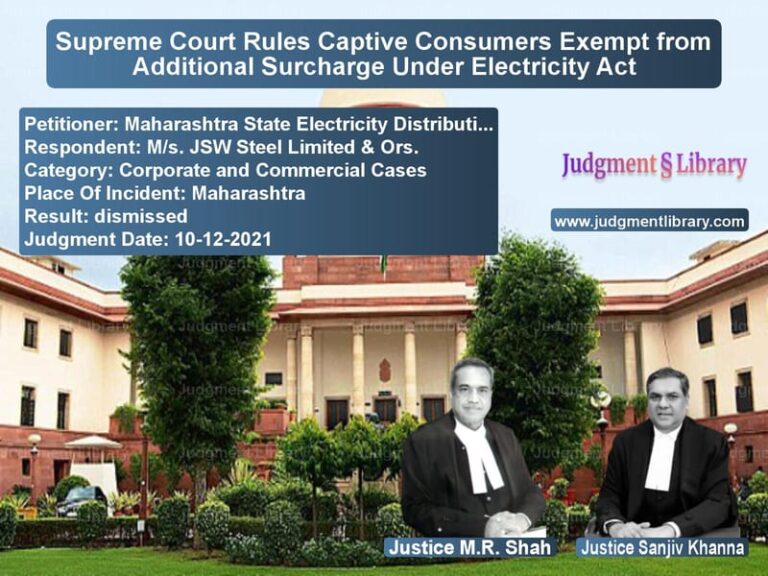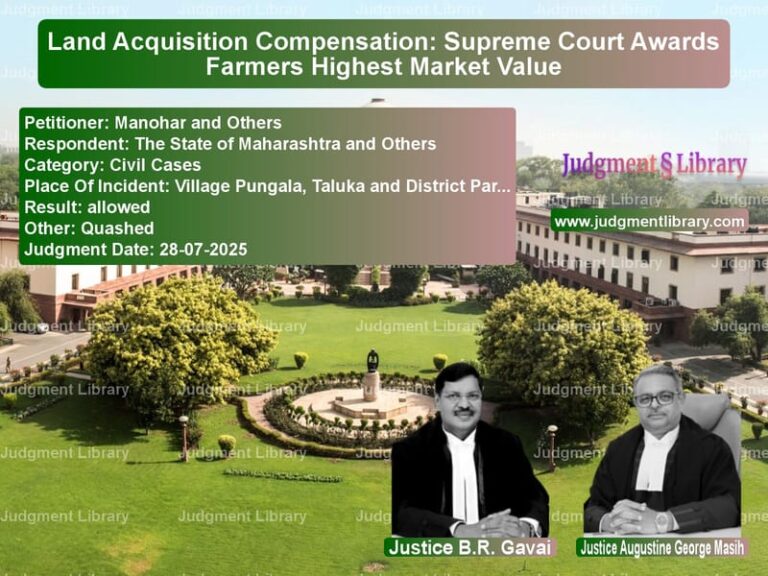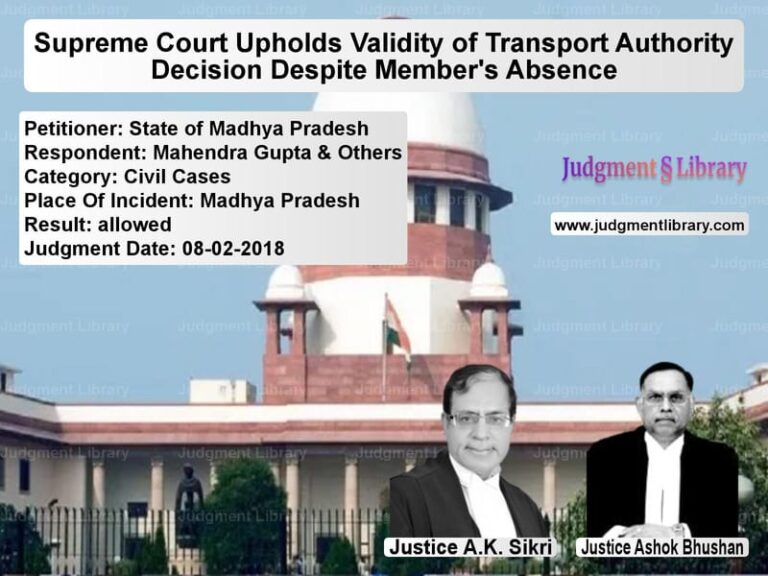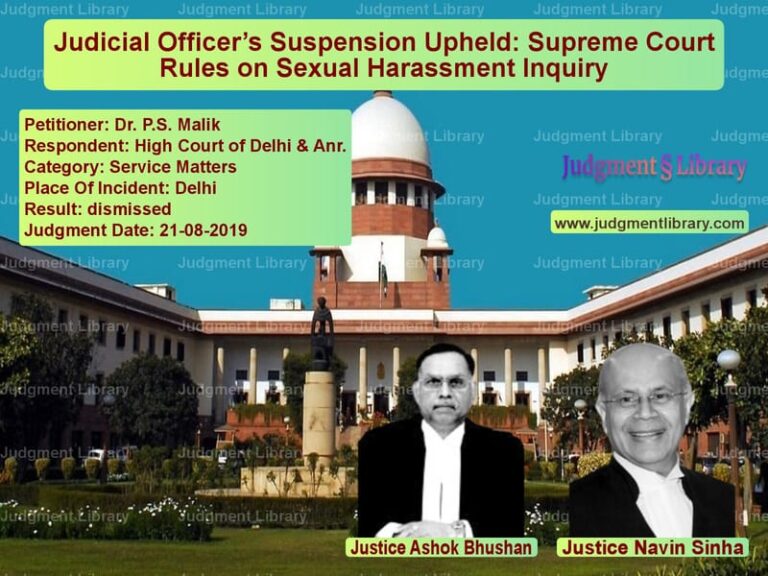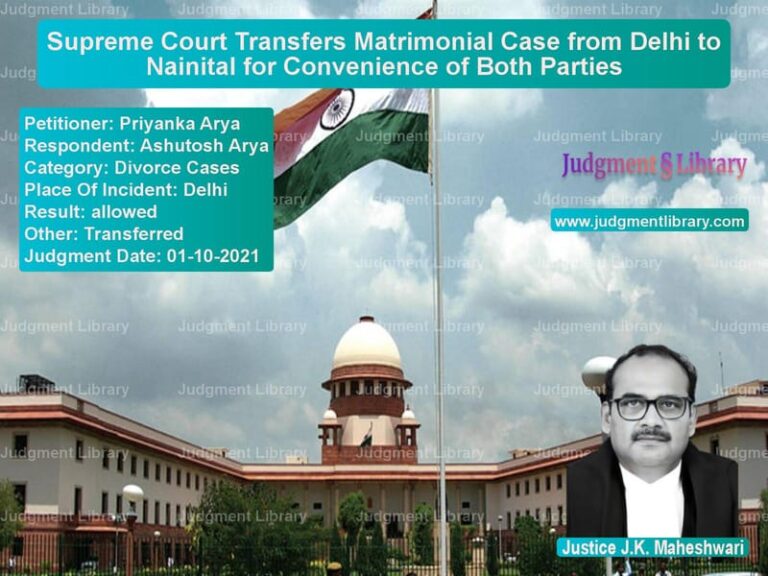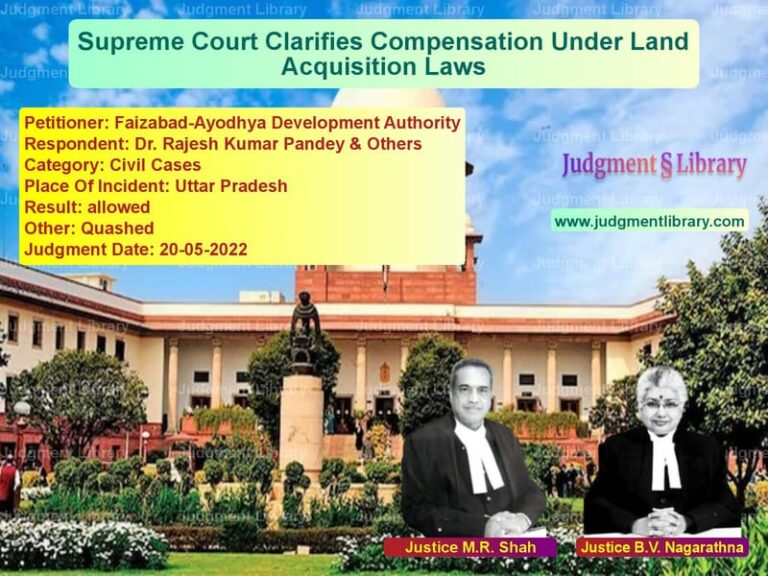Route Deviation Insurance Claim: Supreme Court Upholds Pay and Recovery Principle for Accident Victims
In a landmark judgment that balances the rights of accident victims with the contractual obligations of insurance companies, the Supreme Court of India has upheld the ‘pay and recover’ principle in cases where vehicles deviate from their permitted routes. The case involved a tragic accident that claimed the life of a man when his motorcycle was hit by a bus operating outside its authorized route, raising crucial questions about insurance liability when permit conditions are violated.
The legal battle began on October 7, 2014, when Srinivasa, also known as Murthy, was riding his motorcycle and was hit by a bus bearing registration number KA-52-9099. The collision proved fatal, and Srinivasa died on the spot, leaving behind his grieving family. The deceased was the sole earning member of his family, running both a Shamiyana Centre and a Ration Shop, and earning approximately Rs. 15,000 per month to support his wife, son, and parents.
The dependents filed a claim petition before the Motor Accidents Claims Tribunal seeking compensation of Rs. 50,00,000 along with 18% interest. The Tribunal, in its order dated December 14, 2016, awarded Rs. 18,86,000 with 6% interest, calculating the deceased’s notional income at Rs. 8,000 per month. Dissatisfied with this amount, the claimants appealed to the High Court, while the insurance company also challenged the order, arguing that the bus had violated permit conditions by operating outside its authorized route.
The High Court, in its September 25, 2019 judgment, partly allowed both appeals. It reassessed the monthly income of the deceased at Rs. 15,750 and added 40% for future prospects. After deducting one-fourth for personal expenses and applying a multiplier of 16, the court calculated the loss of dependency at Rs. 30,24,000. Additional compensation was awarded for consortium – Rs. 40,000 to the widow for loss of spousal consortium, Rs. 30,000 to the son for loss of parental consortium, and Rs. 30,000 each to the parents for loss of filial consortium. Funeral expenses and loss of estate brought the total compensation to Rs. 31,84,000.
The crucial legal issue before the Supreme Court was whether deviation from the prescribed route as per the permit would impact the insurance company’s liability for accidents occurring on such deviated routes. The insurance company had argued that the bus was not permitted to enter Channapatna City where the accident occurred, and the permit only covered the route from Bengaluru to Mysore.
The Supreme Court bench comprising Justices Sanjay Karol and Prashant Kumar Mishra examined several precedents on the ‘pay and recover’ principle. The court referenced the landmark case of National Insurance Co. Ltd. v. Swaran Singh, where a three-judge bench observed: “Sub-section (5) of Section 149 which imposes a liability on the insurer must also be given its full effect. The insurance company may not be liable to satisfy the decree and, therefore, its liability may be zero but it does not mean that it did not have initial liability at all. Thus, if the insurance company is made liable to pay any amount, it can recover the entire amount paid to the third party on behalf of the assured.”
The court also cited Justice K.T. Thomas’s opinion in New India Assurance Co. v. Kamla, which stated: “The insurer and the insured are bound by the conditions enumerated in the policy and the insurer is not liable to the insured if there is violation of any policy condition. But the insurer who is made statutorily liable to pay compensation to third parties on account of the certificate of insurance issued shall be entitled to recover from the insured the amount paid to the third parties, if there was any breach of policy conditions.”
Other cases examined included Parminder Singh v. New India Assurance Co. Ltd., which approved the application of this principle when drivers lack valid licenses, and S. Iyyapan v. United India Insurance Co. Ltd., which applied it to cases where there were discrepancies between the vehicle being driven and the driver’s license endorsement. The court also referenced M/s Chatha Service Station v. Lalmati Devi & Ors, where the principle was applied when vehicles carried unauthorized hazardous goods.
In its analysis, the Supreme Court recognized the competing interests at stake. On one hand, “the purpose of an insurance policy in the present context is to shield the owner/operator from direct liability when such an unforeseen/unfortunate incident takes place.” The court strongly emphasized that “to deny the victim/dependents of the victim compensation simply because the accident took place outside the bounds of the permit and, therefore, is outside the purview of the insurance policy, would be offensive to the sense of justice, for the accident itself is for no fault of his.”
On the other hand, the court acknowledged the insurance company’s position: “when an Insurance Company takes on a policy and accepts payments of premium in pursuance thereto, it agrees to do so within certain bounds. The contract lays down the four corners within which such an insurance policy would operate. If that is the case, to expect the insurer to pay compensation to a third party, which is clearly outside the bounds of the said agreement would be unfair.”
The Supreme Court found the perfect balance in the ‘pay and recover’ principle, stating: “Balancing the need for payment of compensation to the victim vis-à-vis the interests of the insurer, the order of the High Court applying the pay and recover principle, in our considered view, is entirely justified and requires no interference.”
The court dismissed the appeals while upholding the High Court’s direction that the insurance company must pay the compensation but can recover the amount from the bus owner. This judgment reinforces the protective intent of motor vehicle insurance laws while respecting the contractual boundaries of insurance policies. It ensures that accident victims receive timely compensation regardless of permit violations, while insurance companies have recourse against policyholders who breach contract terms.
The Supreme Court’s decision provides crucial clarity on insurance liability in cases of route deviation, establishing that while insurance companies must fulfill their social obligation to compensate victims, they are not absolved from pursuing recovery from those who violate permit conditions. This balanced approach protects the interests of all parties while ensuring that justice is served to those who suffer due to accidents on Indian roads.
Petitioner Name: K. Nagendra.Respondent Name: The New India Insurance Co. Ltd. & Ors.Judgment By: Justice Sanjay Karol, Justice Prashant Kumar Mishra.Place Of Incident: Channapatna.Judgment Date: 29-10-2025.Result: dismissed.
Don’t miss out on the full details! Download the complete judgment in PDF format below and gain valuable insights instantly!
Download Judgment: k.-nagendra-vs-the-new-india-insura-supreme-court-of-india-judgment-dated-29-10-2025.pdf
Directly Download Judgment: Directly download this Judgment
See all petitions in Motor Insurance Settlements
See all petitions in Third-Party Insurance
See all petitions in Insurance Settlements
See all petitions in Road Accident Cases
See all petitions in Compensation Disputes
See all petitions in Motor Vehicle Act
See all petitions in Judgment by Sanjay Karol
See all petitions in Judgment by Prashant Kumar Mishra
See all petitions in dismissed
See all petitions in supreme court of India judgments October 2025
See all petitions in 2025 judgments
See all posts in Insurance Cases Category
See all allowed petitions in Insurance Cases Category
See all Dismissed petitions in Insurance Cases Category
See all partially allowed petitions in Insurance Cases Category

